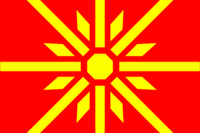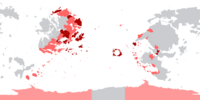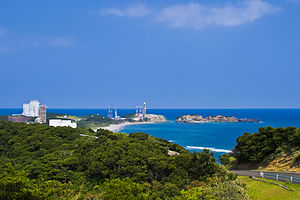Entente of Oriental States
 Flag of the Entente | |
 Member States of EOS | |
| Abbreviation | EOS |
|---|---|
| Motto | Ex Oriente, Securitas |
| Predecessor | Europan Commercial Alliance Central Alliance |
| Founded at | Alaghon, Tamurin |
| Type | Military Alliance |
| Purpose | Defensive Alliance, Economic and Scientific Cooperation |
| Headquarters | EOS Island, Orioni |
| Website | www.eos.int |
The Entente of Oriental States or EOS is a major multinational alliance consisting of geographically close states in Europa and Thalassa. Founded in June 2006[1], the main purpose of the organization is the ensured protection of its membership in the case of aggression from a non-member, considering such an act to be an attack upon all. It is also an economic and scientific cooperation umbrella for the overall geographic area.
History
In 1954 the Europan Commercial Alliance was formed. The ECA was one of the first international organisations on Eurth to be based on the principles of supranationalism. It started the process of integration which led to the Entente of Oriental States.
The Charter of the Entente of Oriental States is the founding treaty of the Entente of Oriental States.[2] Adopted in 2006, it stipulates that the alliance is "open to all nations of Eastern Europa." This clause was later expanded to include all countries bordering the Oriental Ocean. Initially, in 2006, there were six founding members. There was a continual increase in membership during the first half of the 21st Century.
Participating countries
Observer status is a privilege granted to non-members to give them an ability to participate in the organization's activities. Observer status is granted to states bordering the Oriental Ocean that have an interest in the EOS's activities. Observers generally have a limited ability to participate in the EOS, lacking the ability to vote or propose resolutions. Five countries have observer status that entitles them to express their opinion and give advice but denies them voting rights. Mantella was suspended following the start of the Civil War and the use of military force against civilians of Cristina.
Members
| Country | Permanent representative | Status | Date of accession |
|---|---|---|---|
| Mr Arnaldo Paz | Founding member | June 2006 | |
| Mr Simeone Patania | Founding member | June 2006 | |
| Mrs Hugrún Hnefilsdóttir | Founding member | June 2006 | |
| Mrs Scarlett Blair | Founding member | June 2006 | |
| Mr Robert Wassermann | Founding member | June 2006 | |
| Mrs Anna Hackney | Founding member Headquarters host |
June 2006 | |
| Mrs Kaliona Kalani | Member | August 2006 | |
| Mr Gonpo Aukatsang | Member | August 2006 | |
| Mrs Manoun Péricard | Member | August 2006 | |
| Mr Axton Donaldson | Member | September 2006 | |
| Mr Claudio Soto | Member | March 2007 | |
| Mrs Raffaella Binetti | Member | December 2017[3] | |
| Mrs Ghislaine Lièvremont | Member | December 2017 | |
| Mr Alessandro Ingold | Observer | December 2017 | |
| Mrs Bruna Polselli | Observer Suspended |
December 2017 | |
| Mr Văn Quốc Mạnh | Member Observer (Dec 2017) |
February 2019 | |
| Mrs Lian Luoyang | Member | April 2019[4] | |
| Mr/s $Name | Observer | July 2020[5] |
Enlargement
There are several prospective candidates for future membership of the Entente of Oriental States. None of these have started accession negotiations nor formally submitted an application for membership.
States not on the agenda
Certain states have chosen, for various reasons, not to become full members or observer of EOS. Some have integrated with it to different extents according to their circumstances. Some participate directly in the single market, some do so via bilateral treaties and others have specific agreements with EOS and neighbouring countries.
Programmes

Several programmes have been established, based on individual bilateral relations between each partner nation and EOS. Each member may choose the extent of its participation. Other third nations may also be contacted for participation in some activities of the Entente.
Civilian
- Earthquake relief in San Agostino, Italgria
- EOS Banking Network
- EOS Space Program administered by professor Harry Carey, who also presents Space, The Infinite Frontier
- Joint Headquarters Facilities
- MIDAS programme
- EOS Antargic Strategy and 20 Year Action Plan
Military
- EOS Anti-ballistic missile-program
- Exchange of military forces
- Peacekeeping mission in Zekistan
- Peacekeeping mission in Bainbridge Islands
Footnotes
- ↑ EOS sees the light of day (29 June 2006)
- ↑ Charter of the Entente of Oriental States (1 July 2006)
- ↑ Proposed observer status (18 October 2017)
- ↑ Intervention in Bainbridge Islands (9 April 2019)
- ↑ Extending the hand of friendship across the Ocean (1 July 2020)
